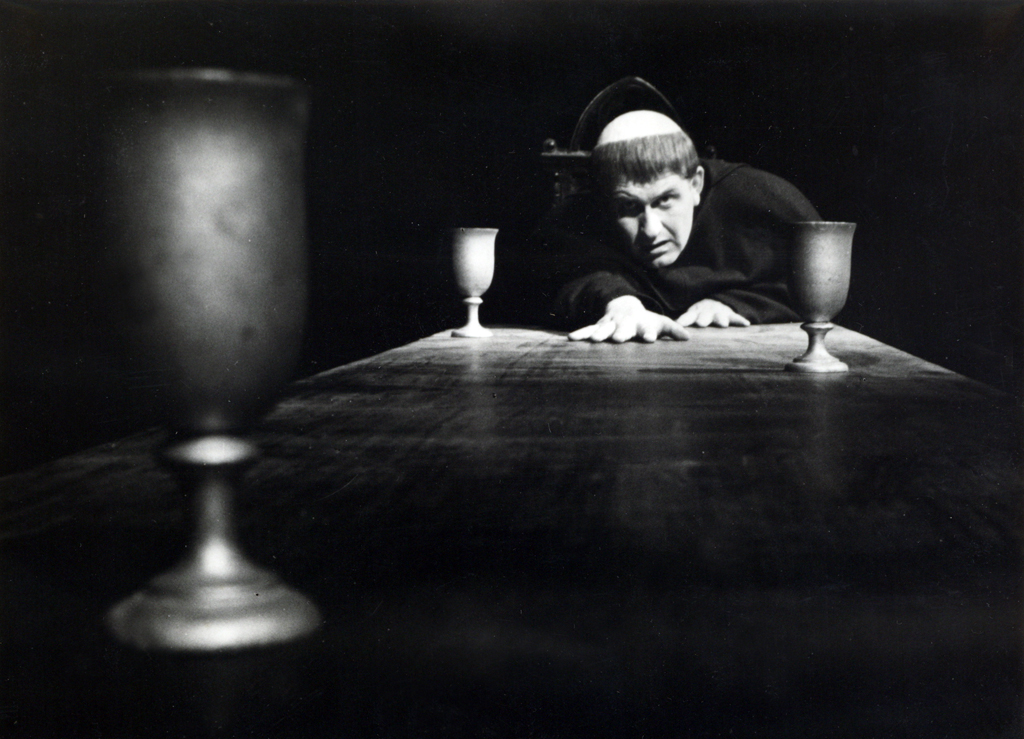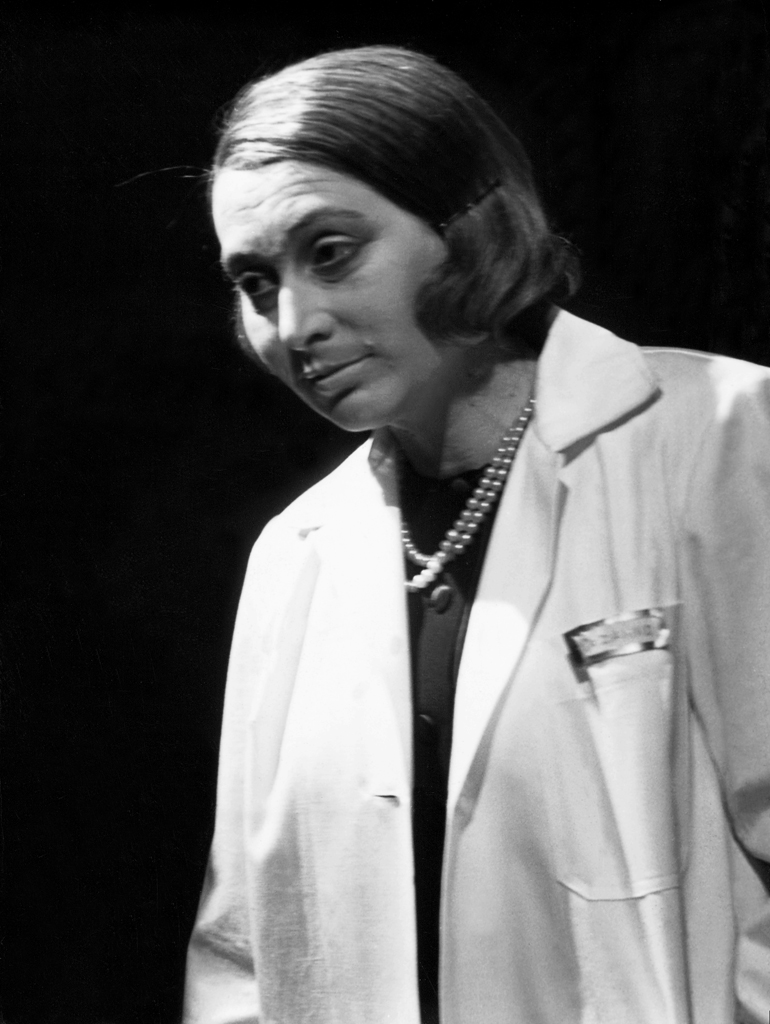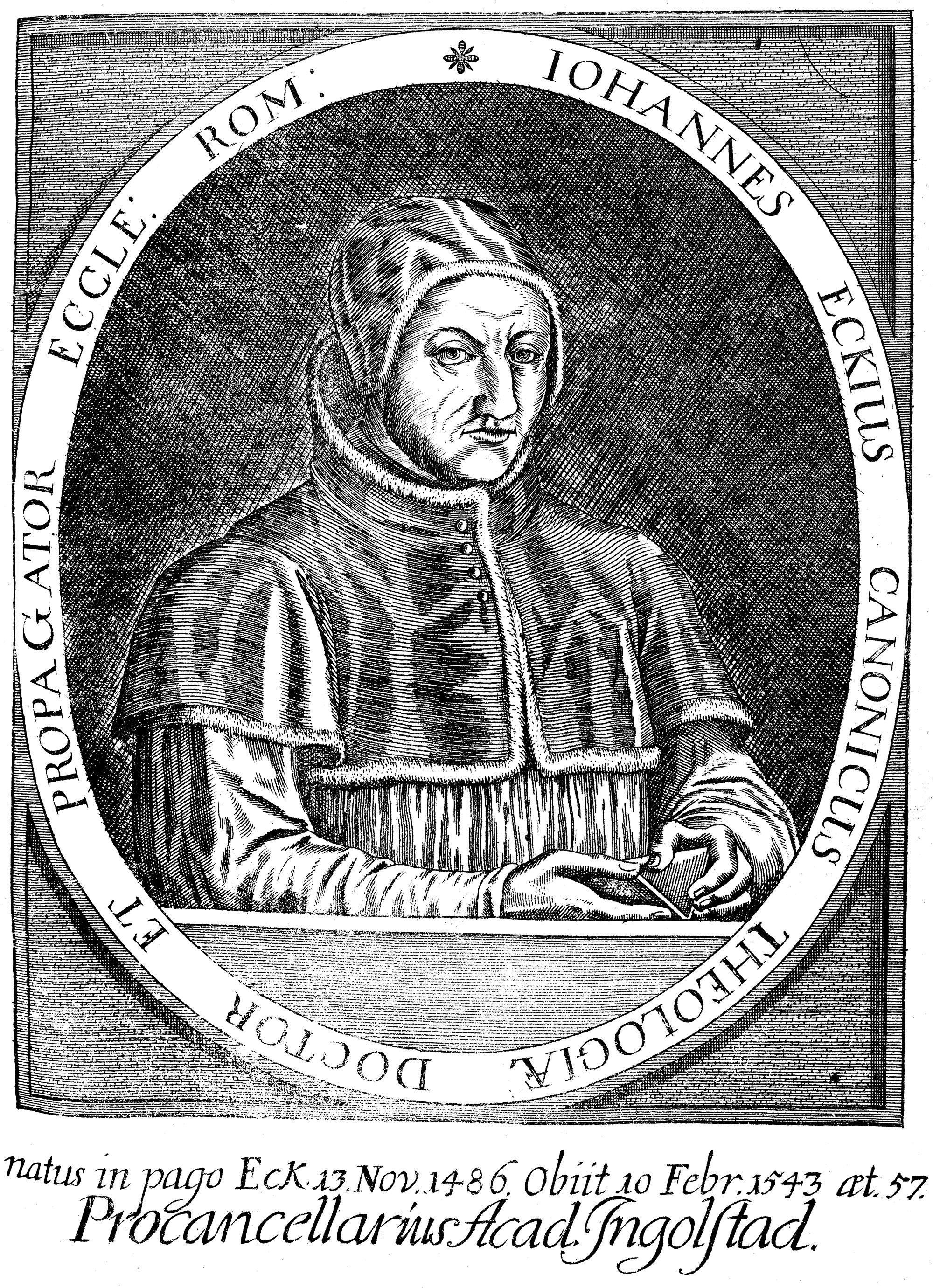|
Luther (1964 Film)
''Luther'' is a 1964 TV play broadcast by the Australian Broadcasting Corporation. It was adapted by Phillip Grenville Mann from the 1961 play by John Osborne. It was directed in Melbourne by Christopher Muir and starred Terry Norris in the title role. Premise It is a biographical play about the life of Luther during the years of 1506–1530. The play shows his marriage and the interactions he had with the people in his life. Cast *Terry Norris as Martin Luther *Syd Conabere as Knight *Douglas Kelly as Johann Tetzel *Michael Duffield as Staupitz *Brian James as Cajetan *William Lloyd as Prior *James Lynch as Hans *Peter Aanensen as Lucas * George Whaley as Brother Weinand *Beverley Dunn as Katherine *Glen Farmer as Militz * Michael Cole as Pope Leo X *Keith Lee as Eck *John Royle as Emperor *Ian Neill as Ulrich *Ray Angel as archbishop *Colin McEwan as one of the monks Production Osborne's play was first performed in 1961. The play had a cast of 34 and was headl ... [...More Info...] [...Related Items...] OR: [Wikipedia] [Google] [Baidu] |
Luther (play)
''Luther'' is a 1961 play by John Osborne depicting the life of Martin Luther, one of the foremost instigators of the Protestant Reformation. Albert Finney created the role of Luther, which he performed with the English Stage Company at the Theatre Royal, Nottingham,Osborne, p. 7 the Théâtre Sarah Bernhardt, Paris,"Paris Premiere for Osborne's Luther", ''The Times'', 25 March 1961, p. 3 the Holland Festival, the Royal Court Theatre, London,"Best Guarantee yet of Mr. Osborne's Stamina", ''The Times'', 26 July 1961, p. 13 the Phoenix Theatre, London, and the St. James Theatre, New York. The original West End run at the Phoenix ended in March 1962, after 239 performances there, when Finney had to leave the cast to fulfill a contractual obligation with a film company. Luther won the Tony Award for Best Play in 1964. Original London cast The English Stage Company cast for the production at the Royal Court was: *Knight – Julian Glover *Prior – James Cairncross *Martin � ... [...More Info...] [...Related Items...] OR: [Wikipedia] [Google] [Baidu] |
Katharina Von Bora
Katharina von Bora (; 29 January 1499 – 20 December 1552), after her wedding Katharina Luther, also referred to as "die Lutherin" ("the Lutheress"), was the wife of Martin Luther, German reformer and a seminal figure of the Protestant Reformation. Beyond what is found in the writings of Luther and some of his contemporaries, little is known about her. Despite this, Katharina is often considered an important participant of the Reformation because of her role in helping to set precedents for Protestant family life and clergy marriages. Origin and family background Katharina von Bora was the daughter to a family of Saxon lesser nobility. According to common belief, she was born on 29 January 1499, in Lippendorf, but there is no evidence of this date from contemporary documents. Due to the various lineages within the family and the uncertainty about Katharina's birth name, there were and are diverging theories about her place of birth. Recently a different perspective has been ... [...More Info...] [...Related Items...] OR: [Wikipedia] [Google] [Baidu] |
Films Based On Works By John Osborne
A film also called a movie, motion picture, moving picture, picture, photoplay or (slang) flick is a work of visual art that simulates experiences and otherwise communicates ideas, stories, perceptions, feelings, beauty, or atmosphere through the use of moving images. These images are generally accompanied by sound and, more rarely, other sensory stimulations. The word "cinema", short for cinematography, is often used to refer to filmmaking and the film industry, and to the art form that is the result of it. Recording and transmission of film The moving images of a film are created by photographing actual scenes with a motion-picture camera, by photographing drawings or miniature models using traditional animation techniques, by means of CGI and computer animation, or by a combination of some or all of these techniques, and other visual effects. Before the introduction of digital production, series of still images were recorded on a strip of chemically sensitiz ... [...More Info...] [...Related Items...] OR: [Wikipedia] [Google] [Baidu] |
English-language Television Shows
English is a West Germanic language of the Indo-European language family, with its earliest forms spoken by the inhabitants of early medieval England. It is named after the Angles, one of the ancient Germanic peoples that migrated to the island of Great Britain. Existing on a dialect continuum with Scots, and then closest related to the Low Saxon and Frisian languages, English is genealogically West Germanic. However, its vocabulary is also distinctively influenced by dialects of France (about 29% of Modern English words) and Latin (also about 29%), plus some grammar and a small amount of core vocabulary influenced by Old Norse (a North Germanic language). Speakers of English are called Anglophones. The earliest forms of English, collectively known as Old English, evolved from a group of West Germanic (Ingvaeonic) dialects brought to Great Britain by Anglo-Saxon settlers in the 5th century and further mutated by Norse-speaking Viking settlers starting in the 8th and 9th ... [...More Info...] [...Related Items...] OR: [Wikipedia] [Google] [Baidu] |
Australian Broadcasting Corporation Original Programming
Australian(s) may refer to: Australia * Australia, a country * Australians, citizens of the Commonwealth of Australia ** European Australians ** Anglo-Celtic Australians, Australians descended principally from British colonists ** Aboriginal Australians, indigenous peoples of Australia as identified and defined within Australian law * Australia (continent) The continent of Australia, sometimes known in technical contexts by the names Sahul (), Australia-New Guinea, Australinea, Meganesia, or Papualand to distinguish it from the country of Australia, is located within the Southern and East ... ** Indigenous Australians * Australian English, the dialect of the English language spoken in Australia * Australian Aboriginal languages * ''The Australian'', a newspaper * Australiana, things of Australian origins Other uses * Australian (horse), a racehorse * Australian, British Columbia, an unincorporated community in Canada See also * The Australian (other) * ... [...More Info...] [...Related Items...] OR: [Wikipedia] [Google] [Baidu] |
1960s Australian Television Plays
Year 196 ( CXCVI) was a leap year starting on Thursday (link will display the full calendar) of the Julian calendar. At the time, it was known as the Year of the Consulship of Dexter and Messalla (or, less frequently, year 949 ''Ab urbe condita''). The denomination 196 for this year has been used since the early medieval period, when the Anno Domini calendar era became the prevalent method in Europe for naming years. Events By place Roman Empire * Emperor Septimius Severus attempts to assassinate Clodius Albinus but fails, causing Albinus to retaliate militarily. * Emperor Septimius Severus captures and sacks Byzantium; the city is rebuilt and regains its previous prosperity. * In order to assure the support of the Roman legion in Germany on his march to Rome, Clodius Albinus is declared Augustus by his army while crossing Gaul. * Hadrian's wall in Britain is partially destroyed. China * First year of the '' Jian'an era of the Chinese Han Dynasty. * Emperor Xian of ... [...More Info...] [...Related Items...] OR: [Wikipedia] [Google] [Baidu] |
Films About Martin Luther
A film also called a movie, motion picture, moving picture, picture, photoplay or (slang) flick is a work of visual art that simulates experiences and otherwise communicates ideas, stories, perceptions, feelings, beauty, or atmosphere through the use of moving images. These images are generally accompanied by sound and, more rarely, other sensory stimulations. The word "cinema", short for cinematography, is often used to refer to filmmaking and the film industry, and to the art form that is the result of it. Recording and transmission of film The moving images of a film are created by photographing actual scenes with a motion-picture camera, by photographing drawings or miniature models using traditional animation techniques, by means of CGI and computer animation, or by a combination of some or all of these techniques, and other visual effects. Before the introduction of digital production, series of still images were recorded on a strip of chemically sensitized ... [...More Info...] [...Related Items...] OR: [Wikipedia] [Google] [Baidu] |
The Physicists (film)
''The Physicists'' (german: Die Physiker) is a satiric drama/ tragic comedy written in 1961 by Swiss writer Friedrich Dürrenmatt. The play was mainly written as a result of the Second World War and many advances in science and nuclear technology. The play deals with questions of scientific ethics and humanity's general ability to manage its intellectual responsibility. It is often recognized as his most impressive yet most easily understood work. The play was first performed in Zürich in 1962 and published the same year by Verlags AG "Die Arche". It was translated into English by James Kirkup, and published in the US in 1964 by Grove Press, under its Evergreen imprint. Synopsis The story is set in the drawing room of ''Les Cerisiers'' sanatorium, which is a psychiatric home for the mentally ill, run by a doctor and psychologist, Mathilde von Zahnd. The main room, where the play is set, is connected to three other rooms, each of which is inhabited by a patient. These three men ... [...More Info...] [...Related Items...] OR: [Wikipedia] [Google] [Baidu] |
The Sponge Room
''The Sponge Room'' is an Australian television film which aired in 1964 on ABC. Produced in Melbourne, it aired in a 50-minute time-slot and was an adaptation of an overseas stage play, written by Willis Hall and Keith Waterhouse. It is not known if a copy of the television film still exists, given the Lost television broadcast#Wiping, wiping of the era. Premise A married man secretly meets with a woman each week at the natural history museum in London. Cast *Julia Blake as Hilary *Terry Norris (actor), Terry Norris as Colin *Neil Curnow as the attendant Production The play had been produced on stage in Sydney that year under the direction of Ken Hannam. It had also been performed on ABC radio that year. It was one of 20 TV plays produced by the ABC in 1964. Reception The ''Sydney Morning Herald'' praised Barton using "the extremely effective device" of a background of "complete silence from start to finish". References External links''The Sponge Room'' on IMDb ... [...More Info...] [...Related Items...] OR: [Wikipedia] [Google] [Baidu] |
Nude With Violin (film)
''Nude with Violin'' is a 1964 television play broadcast by the Australian Broadcasting Corporation based on the play ''Nude with Violin'' by Noël Coward. It was directed by Christopher Muir. Plot In Paris in 1856, a famous artist, Paul Sorodin, has died. His estranged wife and children arrive from London for his funeral. Accompanied by Sordin's manager, they arrive to discover the apartment is occupied by Sordin's valet. Questions arise as to the authenticity of Sorodin's pictures. Cast *Terry Norris as Sebastien Lacreole *Gerda Nicolson as Jane Sorodin * Julia Blake as Pamela *Alex Varadi as Jacob Friedland *Roma Johnstone as Anya Pavalikov *Barbara Brandon as Isobel Sorodin *Brian Hansford as Obadiah Lelwellyn * Terence Donovan as Clinton Preminger *Follie Settees as Cherry May *Karl Lukk as Fabrice *Nick Sofokles as Lauderdale Production It was one of 20 TV plays produced by the ABC in 1964. Terry Norris played the role performed on stage in England by John Gielgud and ... [...More Info...] [...Related Items...] OR: [Wikipedia] [Google] [Baidu] |
Charles V, Holy Roman Emperor
Charles V, french: Charles Quint, it, Carlo V, nl, Karel V, ca, Carles V, la, Carolus V (24 February 1500 – 21 September 1558) was Holy Roman Emperor and Archduke of Austria from 1519 to 1556, King of Spain (Crown of Castile, Castile and Crown of Aragon, Aragon) from 1516 to 1556, and Lord of the Netherlands as titular Duke of Burgundy from 1506 to 1555. He was heir to and then head of the rising House of Habsburg during the first half of the 16th century, his dominions in Europe included the Holy Roman Empire, extending from Kingdom of Germany, Germany to Kingdom of Italy (Holy Roman Empire), northern Italy with direct rule over the Austrian hereditary lands and the Burgundian Low Countries, and Habsburg Spain, Spain with its southern Italy, southern Italian possessions of Kingdom of Naples, Naples, Kingdom of Sicily, Sicily, and Kingdom of Sardinia, Sardinia. He oversaw both the continuation of the long-lasting Spanish colonization of the Americas and the short-live ... [...More Info...] [...Related Items...] OR: [Wikipedia] [Google] [Baidu] |
Johann Eck
Johann Maier von Eck (13 November 1486 – 13 February 1543), often anglicized as John Eck, was a German Catholic theologian, scholastic, prelate, and a pioneer of the counter-reformation who was among Martin Luther's most important interlocutors and theological opponents. Life Johann Eck was born Johann Maier at Eck (later Egg, near Memmingen, Swabia) and derived his additional surname from his birthplace, which he himself, after 1523, always modified into Eckius or Eccius, i.e. "of Eck". His father, Michael Maier, was a peasant and bailiff, or ''Amtmann'', of the village. The boy's education was undertaken by his uncle, Martin Maier, parish priest at Rottenburg on the river Neckar. At the age of 12 he entered the University of Heidelberg, which he left in the following year for Tübingen. After taking his master's degree in 1501, he began the study of theology under Johann Jakob Lempp, and studied the elements of Hebrew and political economy with Konrad Summenhart. H ... [...More Info...] [...Related Items...] OR: [Wikipedia] [Google] [Baidu] |




